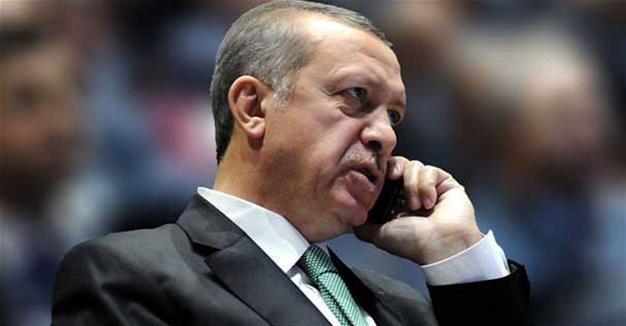Erdoğan continues telephone diplomacy on Myanmar crisis
ISTANBUL – Anadolu Agency

Speaking with his Kazakh, Senegalese, and Nigerian counterparts to give Eid al-Adha greetings, Turkey’s president on Sept. 2 stressed the importance of working together to solve the humanitarian crisis in Myanmar, state-run Anadolu Agency reported.
President Recep Tayyip Erdoğan spoke on the phone with Kazakh President Nursultan Nazarbayev, Senegal’s President Macky Sall, and Nigerian President Muhammadu Buhari.
Earlier this week, Erdoğan also discussed the crisis in Myanmar on the phone with the leaders of Pakistan, Iran, Mauritania, Qatar, Saudi Arabia, Kuwait, Azerbaijan, and Bangladesh.
Speaking with Buhari, Erdoğan also wished the best for the Nigerian leader’s health following his recent treatment in London for an undisclosed ailment.
“The Turkish leader also exchanged Eid greetings with President Buhari. Both leaders wished each other good health and success in their endeavors and extended their greetings and good wishes to the citizens of their friendly countries,” said a statement released by Buhari’s spokesman Garba Shehu.
“The two leaders also discussed at length the forthcoming 9th Summit of the D8, the Organization for Economic Cooperation, at the end of October in Istanbul,” the statement added.
It said Erdoğan also encouraged Buhari’s participation.
Violence erupted in Myanmar’s Rakhine state on Aug. 25 when the country’s security forces launched an operation against the Rohingya Muslim community. It triggered a fresh influx of refugees towards neighboring Bangladesh, though the country sealed off its border to the refugees.
Media reports have said Myanmar security forces have used disproportionate force, displacing thousands of Rohingya villagers and destroying their homes with mortars and machine guns.
The region has seen simmering tension between its Buddhist and Muslim populations since communal violence broke out in 2012.
 Speaking with his Kazakh, Senegalese, and Nigerian counterparts to give Eid al-Adha greetings, Turkey’s president on Sept. 2 stressed the importance of working together to solve the humanitarian crisis in Myanmar, state-run Anadolu Agency reported.
Speaking with his Kazakh, Senegalese, and Nigerian counterparts to give Eid al-Adha greetings, Turkey’s president on Sept. 2 stressed the importance of working together to solve the humanitarian crisis in Myanmar, state-run Anadolu Agency reported.